10-day-old Israeli baby trapped in safe house for nine hours surrounded by Hamas militants
Newborn Kai was trapped in a safe room as his family home was burnt while British aid workers caught in Gaza described their fear

A 10-day-old British-Israeli baby was trapped with his parents in a safe house for nine hours surrounded by the wreckage of their home as Hamas militants stormed their town, The Independent has been told.
The family, who lived in the neighbourhood of Nirim, 1.5 miles from the Gaza border, ran to the shelter after hearing rocket fire at 6 am on Saturday.
Aimee Labban and her husband Uriel were hiding with baby Kai and his aunt, Deborah Mintz, too terrified to leave, said his cousin Russell Langer, a policy researcher based in London.
They were among thousands of people - including aid workers - who hid in Israel and Gaza as Hamas and the Israeli Defence Force exchanged retaliatory strikes.
Mr Langer told The Independent that he was worried after seeing the news of Hammas missile strikes, knowing that his family lived near the Gaza border.
He texted Mrs Labban and it soon became clear that her family was in “immediate danger.”
He received a message from her saying: “We are stuck. They came in and burnt our house.”
As the family was trapped in their safe room, they became aware that Hammas terrorists were in their community and shortly after Hammas set fire to their home.
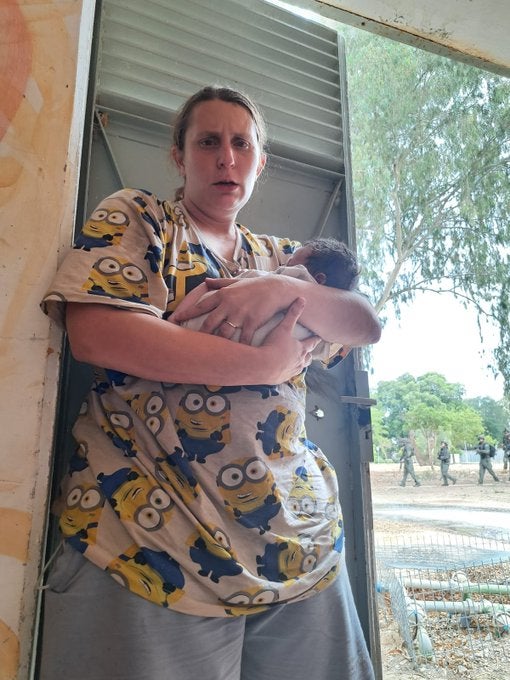
“They were inside the safe room, the fire was stopped from spreading but the room did fill up with smoke, and they had to hold the baby up to the window to ensure that he was able to breathe.
“All they could do at that point in time was weighed in the hope that they would be rescued and not captured,” He said.
Their house was completely burnt down and so were their cars outside.
“Baby Kai appears to be okay but they will never be able to return to their home again, as there’s nothing left to come back to,” Mr Langer added.
Mr Langer said the family were later rescued by the Israeli Defence Force and are now in hospital receiving initial treatment.
“The immediate danger is over, but they're still recovering. It's been quite a traumatic experience for him.”
In Gaza, two British nationals were among 23 foreign aid workers trapped in a United Nations Relief and Works Agency (UNRWA) safe house.
Abdelqader Hammad, 67 - one of the two British citizens currently stuck - is a consultant transplant surgeon at the Royal Liverpool University Hospital. He had travelled to Gaza on Friday afternoon to perform kidney transplants voluntarily as part of Liverpool’s International Transplant Initiative.
As he spoke to The Independent, explosions could be heard in the background as he commented that the bombing had become “very heavy”.
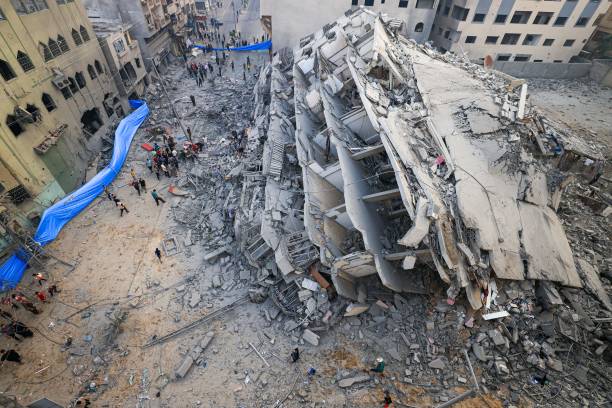
“People are here from all over the world,” he said. “They’re all foreign aid workers from Britain, Germany, Ukraine, Japan, and some African countries. There are quite a few nationalities here.”
Mr Hammad arrived in the country the day preceding Hamas’s offensive into Israel and was expecting to return to Liverpool on Tuesday after he had completed some scheduled kidney transplants that had been prepared for months prior. He said the offensive had taken everyone by surprise.
“We’re in a better place than most of the people in Gaza,” he said. “I came here to do some surgeries, and I find myself stuck doing nothing just watching bombs dropping around us. We’ve heard about five explosions nearby.”
Foreign aid workers were briefed minutes before our conversation and are reported to have been told: “don’t hold your breath for an early evacuation” as WHO attempted to liaise with the Israeli side with no idea of timescales. “We could be here for days,” said Mr Hammad. “We hope we’re in the safest place in Gaza, but that’s a very relative word.”
With limited food and resources, the workers say they are “trying to keep their spirits up” but that “people are definitely worried”.
A local charity worker Rasha, 38, who did not want to be known by her full name said that a 40-storey building 300m from her home had been raized to the ground by an Israeli air strike. She said the average age of the population was only 18.
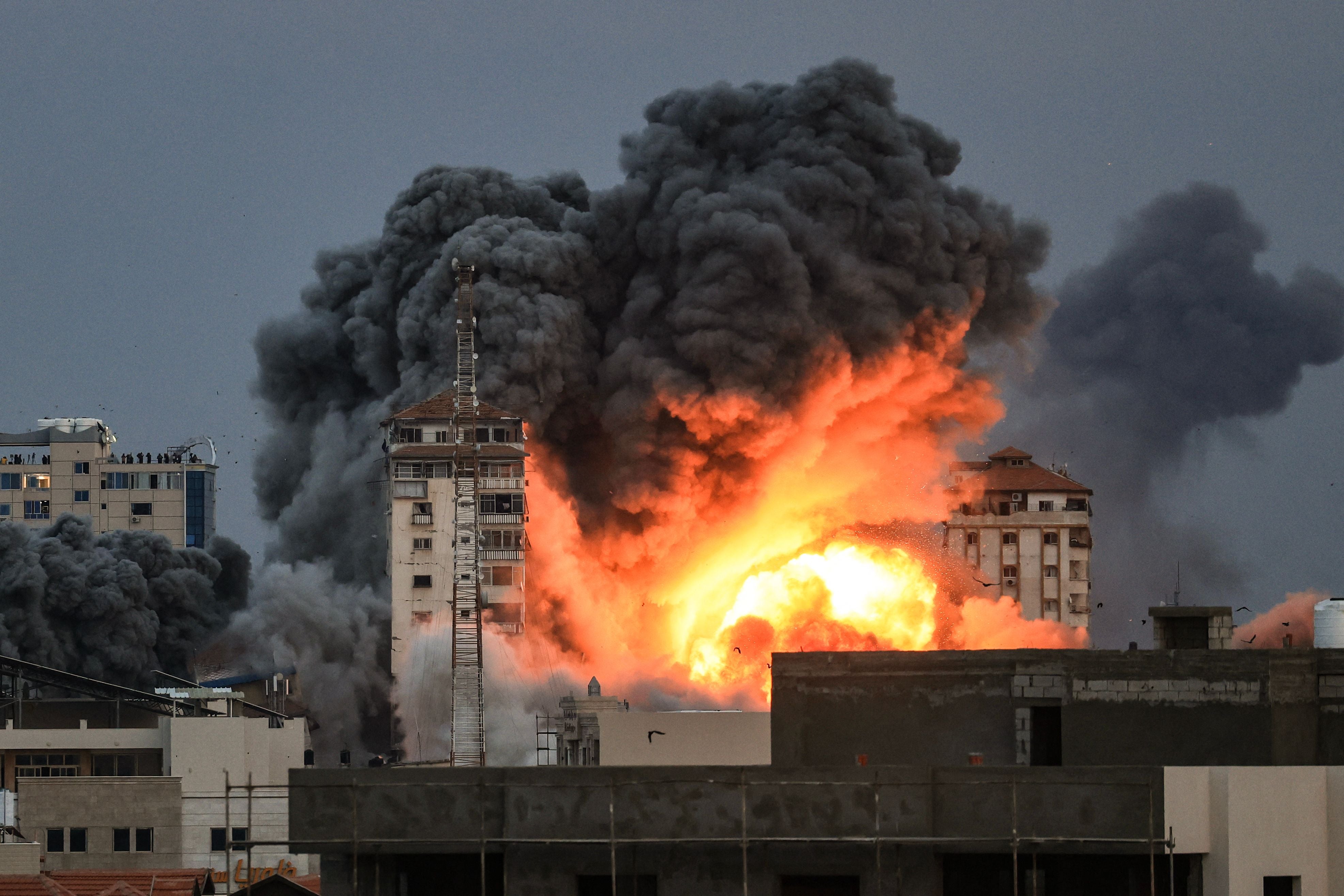
“I look after my elderly parents, and I’m trying to keep them safe,” she said. “But at the same time, there are so many kids in the building that are terrified and they’re crying all the time. I can hear babies crying all day.”
Rasha, who lives in the centre of Gaza said that planes had been flying very close to their homes and that the buildings had been shaking by the both the flights and the air strikes.
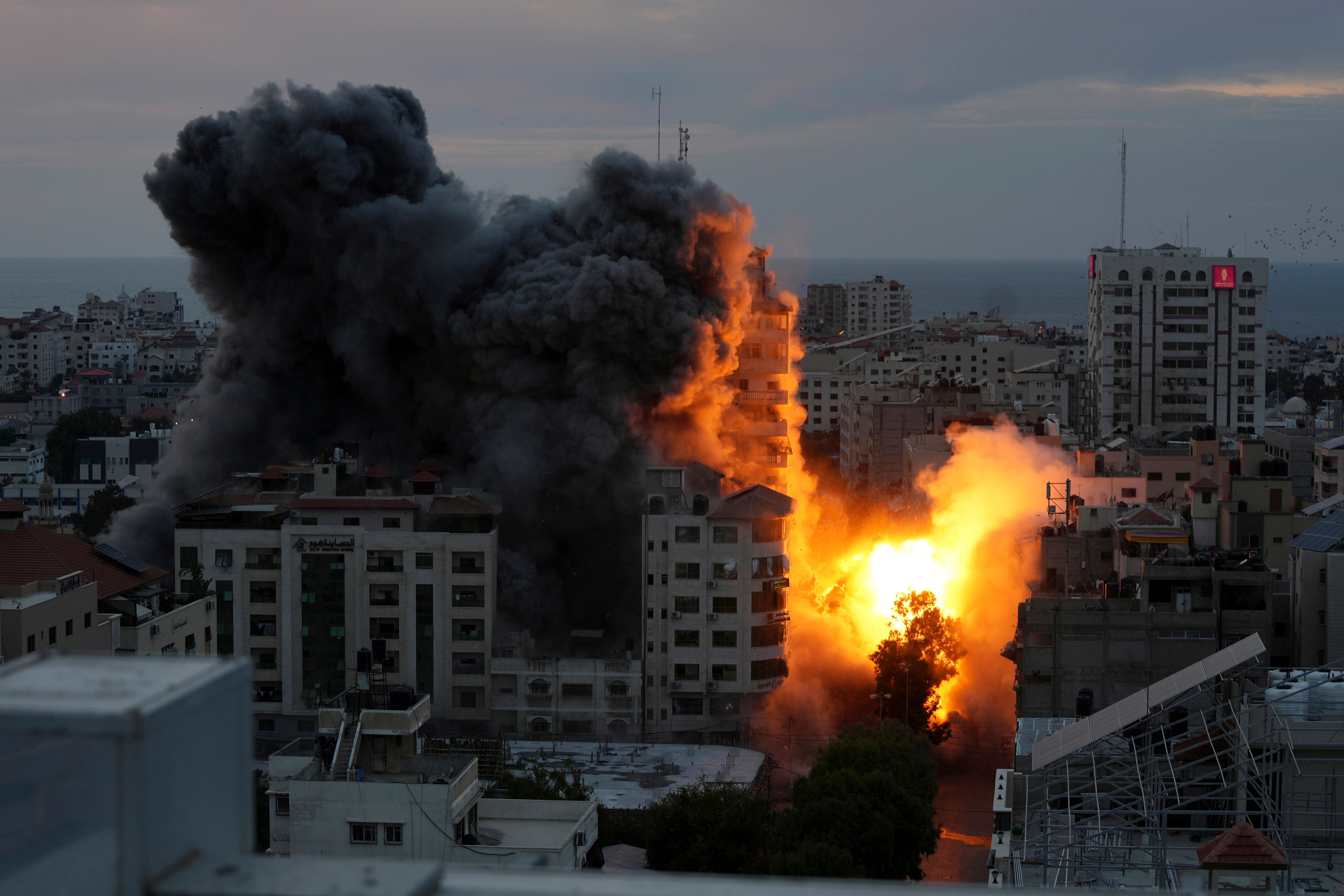
“We’re hearing strikes every hour,” she said. “There aren’t any bunkers, there’s nowhere to hide. ”
As she spoke, explosions could be heard: “They [the explosions]are far away, I can tell the difference between an F16 and other planes now. We just feel drained.”
Gaza is considered one of the most densely populated regions in the world, and Rasha says “dropping missiles anywhere is going to lead to a lot of casualties.”
Medical Aid for Palestinians (MAP), a charity supporting healthcare and medical aid for Palestinians in Gaza say they have a number of workers on the ground.
Mahmoud Shalabi, their Senior Programme Manager in Gaza said: “Today’s escalation is one of the most violent that we have ever witnessed in Gaza, with hospitals overwhelmed by casualties within hours.”
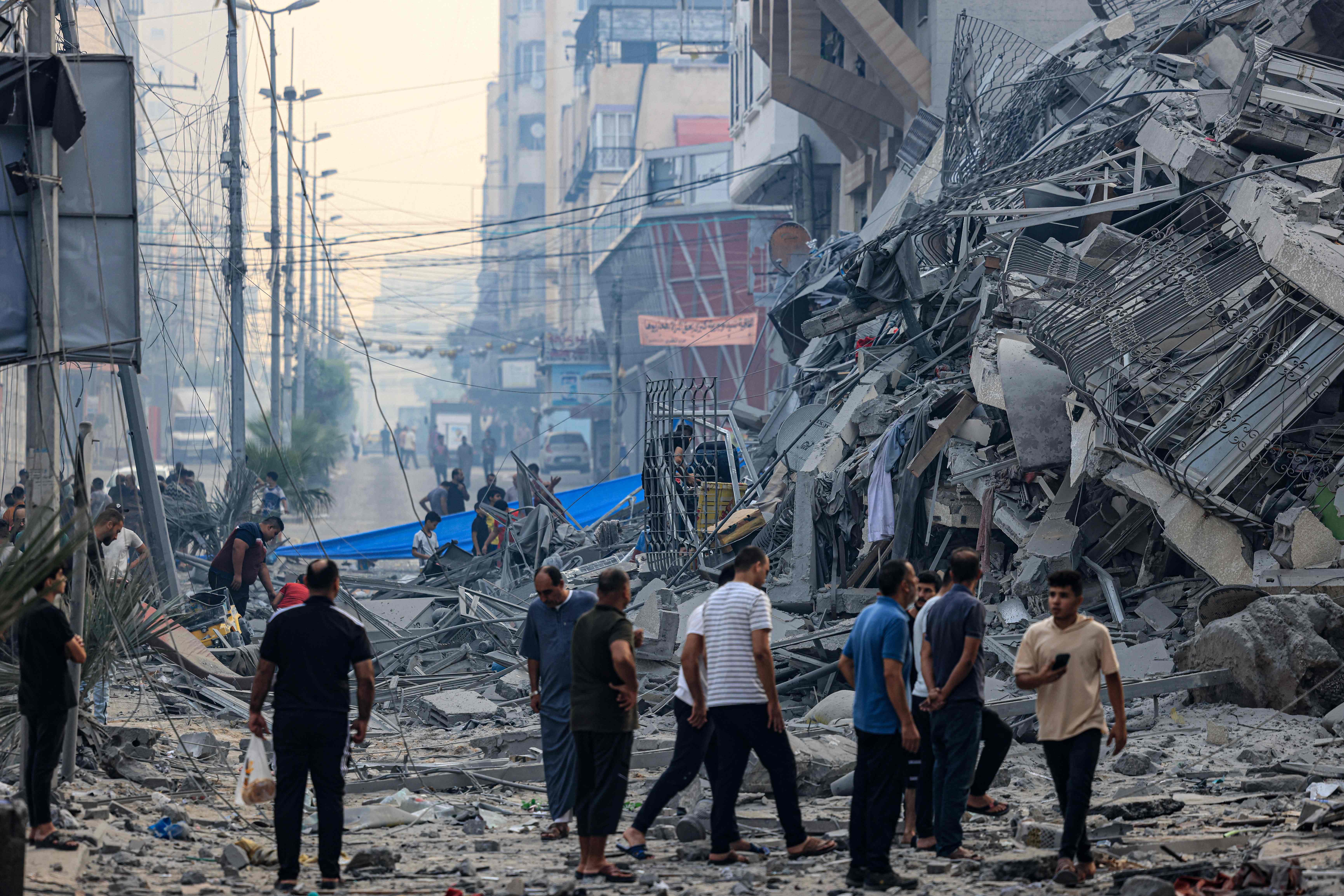
Mr Shalabi said the situation on the ground was “grim” and that one healthcare worker described it as “a slaughterhouse.” He continued: “Many residential buildings are being destroyed forcing people to become internally displaced. The streets are empty. My eldest son is 9, and asked me if he’d die would he go to heaven or hell. It broke my heart in half.”
In regards to resources, he said that medical staff were barely coping as they had no electricity from 3pm yesterday to 9am this morning. Two of Mr Shalabi’s colleagues lost cousins and he said “We cannot reach warehouses, and there are no safe corridors for humanitarians too. We hope that we will come out of this alive and safe.” MAP have launched an emergency response in reaction to the crisis.
The World Health Organisation and British Embassy have been approached for comment.
Join our commenting forum
Join thought-provoking conversations, follow other Independent readers and see their replies
Comments
Bookmark popover
Removed from bookmarks